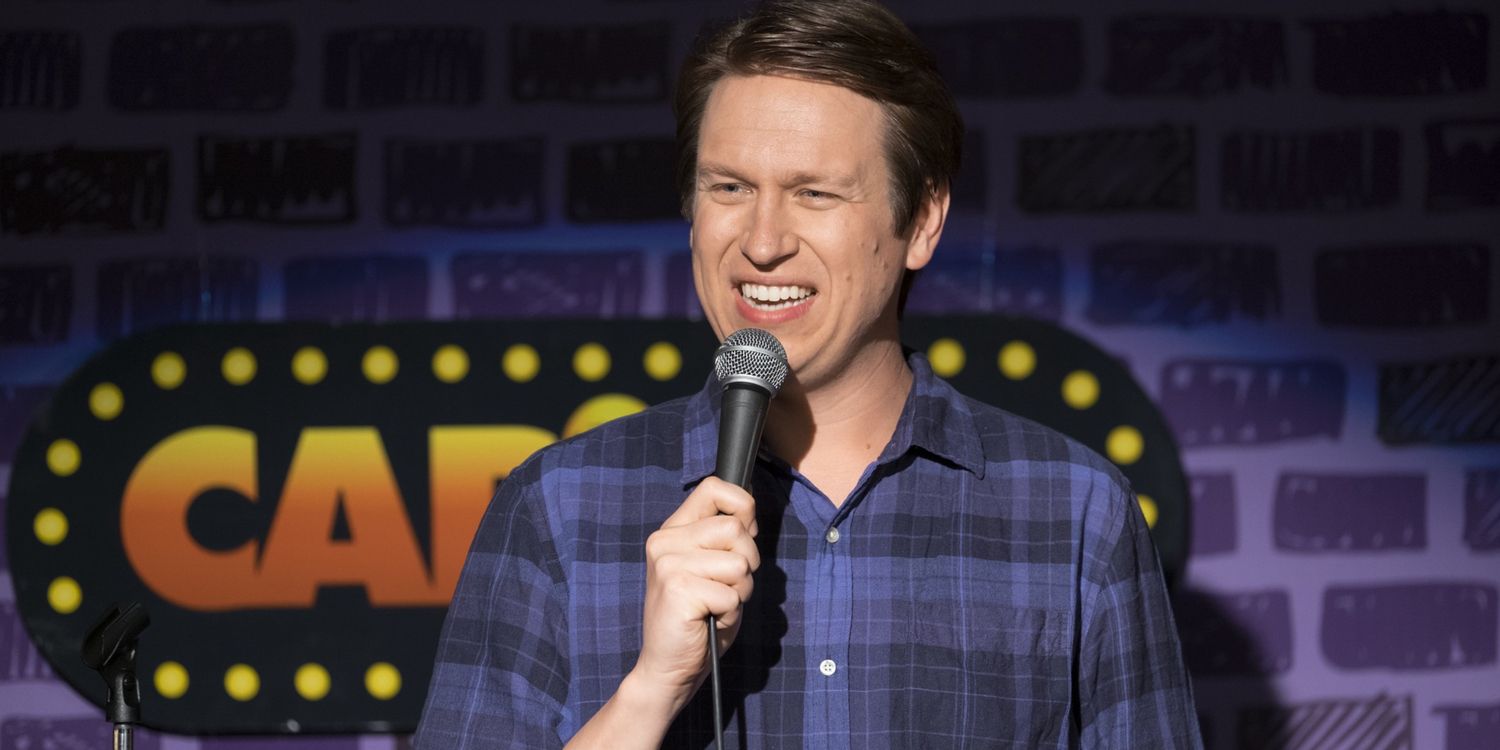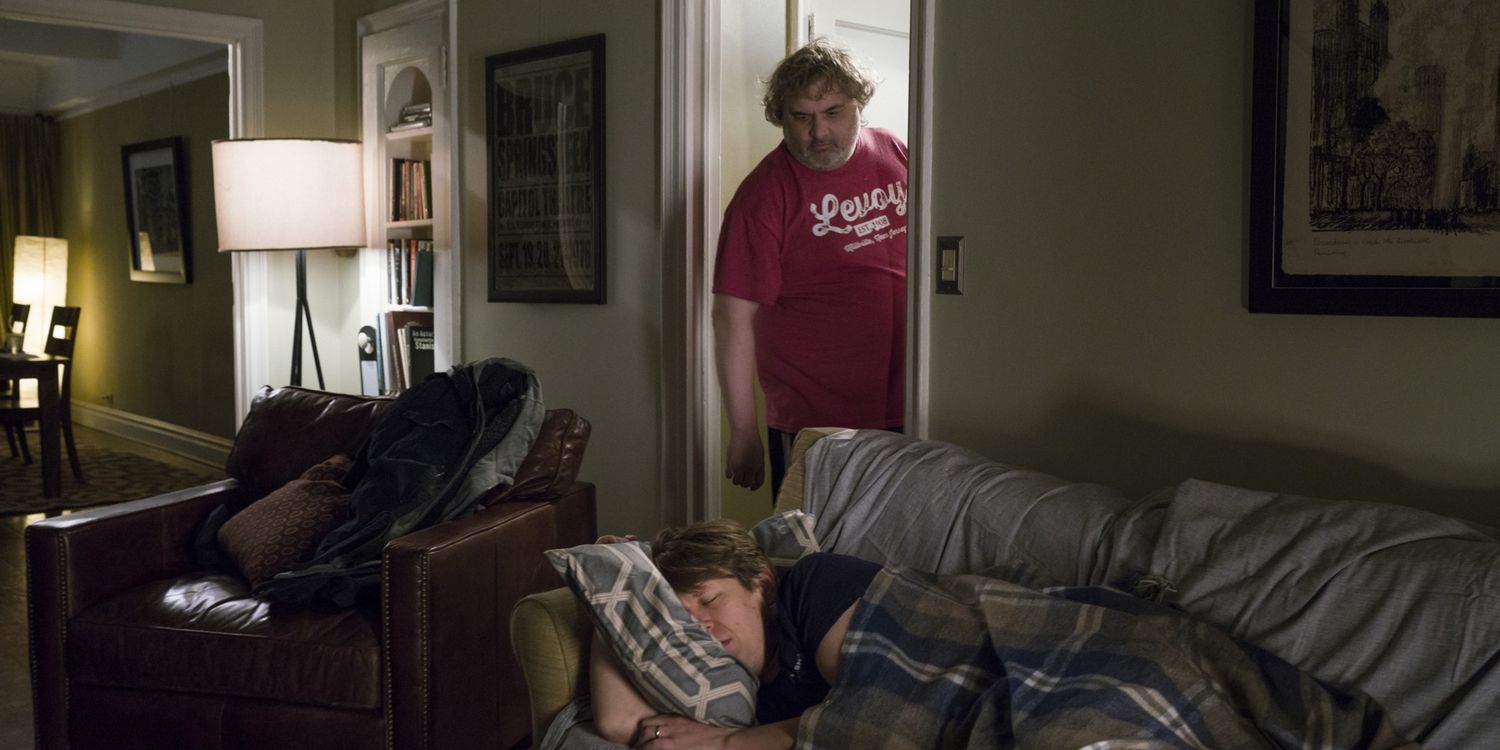It can be hard to believe we still live in a world where stand-up comedians can get a TV show playing a fictionalized version of themselves as stand-up comedians. From Seinfeld to Louie to Mulaney and, to a less specifically autobiographical extent, Showtime's upcoming I'm Dying Up Here and more, television has had an ongoing fixation with stand-up comedians for decades. The obsession makes sense; these are the people whose job it is to make us laugh. They're naturally funny; so gifted at what they do they oftentimes work behind the scenes to make other people seem funnier than they otherwise are. Offering a stand-up comedian his or her (though let's be honest, its more often than not going to be a he) own show is like cutting out the middleman. You want funny? Well, here it is in all its unfiltered glory.
It's a formula that's worked time and time again, which is probably why networks keep circling back. It's as though they're all trying to prove Jon Favreau in Swingers right when he says, "When I lived in New York they made it sound like they were giving out sitcoms to stand-ups at the airport."
HBO's Crashing is the latest to join the ranks of TV series about stand-up comedians, this time starring a fictionalized version of the successful Pete Holmes as a far less prosperous Pete Holmes. In the premiere, the comedian is so low on the comedy food chain it would be an insult to budding comedians to call him an up-and-coming version of Pete Holmes. But that's where the series aims to make its mark. Crashing is another comedy about a stand-up comedian who's funny on and off stage, but it's also sweet and kind, and frequently a squirm-inducing look at how the comedy sausage gets made, how hard it is to be a comedian and how much harder it is to be a successful one.
Crashing begins Pete's journey to self-actualization by doing what every performer needs to make it as a live performer: it removes his safety net, kicks him out of the proverbial nest to see if he can fly. Because it's funny, Pete hits the ground with a resounding splat. The latent appeal of schadenfreude aside, Pete's various misfortunes are not a wellspring of pleasure for the audience. He's a nice guy; thoughtful and without a malicious bone in his body, Pete's life had him headed down a path to youth pastor when a fork in the road sent him off course to become a perpetually struggling stand-up comedian. In other words, he's pretty much the antithesis of what the prevailing characterization of what most stand-ups are like – regardless of whether or not they have their own TV show.
Pete's a bit of late bloomer comedy-wise. Comfortable in his marriage to Jessica (Lauren Lapkus), a schoolteacher who supports him financially as he half-heartedly grinds out open-mic nights in the city; he's waiting for his big break instead of aggressively pursuing one. Early on Crashing introduces a thread about the pitfalls of complacency, intimating in its own way in which contentment is adversative to making good comedy, or, in Pete's case a fruitful marriage.
As with its premise, the set up to Pete's narrative is derivative but still funny. Not long after a disastrous bout of spontaneous sex, Pete comes home to find Jessica having an affair with a third-grade art teacher Leif (George Basil). The concept of infidelity inciting self-reflection, self-discovery, and self-reliance is a tried and true formula; it's not exactly innovative but it doesn't disappoint in terms of engaging the audience or providing reasons to laugh. Holmes' temperament borders on naiveté, he knows he should be outraged by his wife's betrayal yet the emotional gut punch echoes with the unambiguous truth that they were no longer compatible. The spark wasn't gone; it was never really there in the first place.
The premiere comes to that realization quickly, using Jessica's affair to catalyze Pete's removal from his comfort zone. Homeless and seemingly without a friend in the world, Pete blunders his way into a gradually more authentic version of himself. In order to do this, Crashing employs the kindness of strangers with as much frequency as it does sheer coincidence. Stumbling around Manhattan comedy clubs, Pete catches a big break because some other comedians think it'll be funny to see him flame out, which he does. But Pete's comedic self-immolation catches the eye of Artie Lang, who, presumably going against his nature, takes Pete under his wing.
Crashing excels at humanizing its characters and understanding how uncynical kindness can also be funny. Despite sharing DNA with the likes of Seinfeld and Louie, Crashing's closer to FX's Baskets in that regard. The series makes the indistinct boundaries of what goes into a routine fascinating. Comedy is personal but not too personal, confessional but not too confessional. Pete's big shot winds up being an ill-fated declaration of his wife's infidelity. The jokes fall flat as the inexperienced comic is still learning the distinction between his personal pain and the universality of heartbreak that makes it an unlikely wellspring of humor.
Because it has a genuine interest in exploring what is funny and why comedians are compelled to do what they do, Crashing overcomes its rampant similarities to the stand-up-centric shows that have come before.
Next: Silicon Valley Season 4 Trailer: Get Ready For Pied Piper 2.0
Crashing continues next Sunday with 'The Road' @10:30pm on HBO.
Photos: Mary Cybulski/HBO



